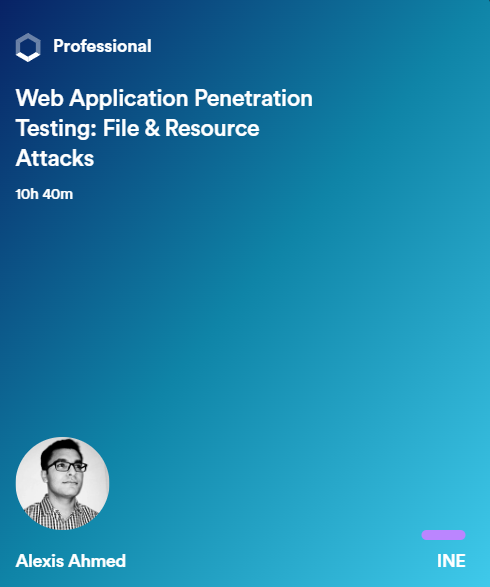
Description
In the ever-evolving landscape of web application security, it’s essential to stay ahead of the curve when it comes to protecting your web applications from potential threats. This comprehensive course delves deep into the critical aspects of file upload, directory traversal, Local File Inclusion (LFI), and Remote File Inclusion (RFI) vulnerabilities. This course is designed for cybersecurity professionals, web application penetration testers, and anyone interested in web application security testing. It focuses on file and resource-based vulnerabilities commonly encountered in modern web applications. It will also give you practical knowledge and hands-on experience in identifying, exploiting, and mitigating vulnerabilities related to file and resource handling in web applications.
This course will start by introducing you to Arbitrary File Upload vulnerabilities and will teach you how to identify and exploit these vulnerabilities for remote code execution (RCE). You will also get an introduction to Directory Traversal vulnerabilities, and you will get an insight into what causes Directory Traversal vulnerabilities and how they can be identified and exploited. The course will then close off by covering inclusion vulnerabilities, specifically Local File Inclusion (LFI) and Remote File Inclusion (RFI).
Released 9/2023



